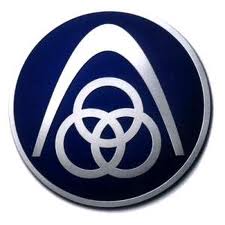 Capital goods businesses: Order intake, sales and adjusted EBIT level with or higher than a year earlier
Capital goods businesses: Order intake, sales and adjusted EBIT level with or higher than a year earlier
Efficiency program on track with €250 million savings
Net income negative due to difficult materials markets
Outlook: Earnings and cash flow still within forecast corridor
Varied start to the new fiscal year at thyssenkrupp: The capital goods businesses continued their solid performance in the 1st quarter 2015/2016, achieving gains in order intake, sales and earnings. However, as expected overall performance in the reporting period was impacted by a sharp deterioration in the climate for the materials businesses. The main reason for this was continued high import pressure, with corresponding destocking and customer caution. Against this background the Group’s adjusted EBIT, net income and free cash flow in the 1st quarter 2015/2016 were lower year-on-year as expected. Despite the difficult environment, earnings and cash flow expectations for the full year remain within the forecast corridor.
“The solid performance of the capital goods businesses confirms that the path we are taking to become a diversified industrial group is right. The materials business continues to cause us concern. We are actively countering this with our efficiency program,” says thyssenkrupp CEO Dr. Heinrich Hiesinger.
Components Technology won several major orders for a newly developed steering system. Margin improved as a result of efficiency gains and cost reductions in production and purchasing. Industrial Solutions made a strong start to the new fiscal year thanks mainly to a major cement plant order in Saudi Arabia. Negotiations for further large projects are at an advanced stage. In addition the integration of the individual business units was continued and sales and purchasing processes optimized. Elevator Technology reported record orders in hand and sales growth driven by strong new installations business in the USA, Asia and the Middle East. Margin improved by 0.5 percentage points year-on-year.
The Group’s 1st-quarter order intake and sales were 3 percent and 5 percent lower year-on-year at €9.8 billion and €9.5 billion respectively (prior year €10.1 billion and €10.0 billion respectively). On a comparable basis, i.e. excluding exchange-rate and portfolio effects, orders and sales were likewise down by 3 percent and 5 percent respectively. The positive performance of the capital goods businesses was not enough to fully offset the volume- and price-related decreases in the materials businesses. Overall all the capital goods businesses profited from their solid market positions and global setup with corresponding positive exchange rate effects.
Adjusted EBIT in the 1st quarter decreased by 26 percent to €234 million (prior year €317 million). All capital goods businesses came in level with or higher than a year earlier. Elevator Technology achieved a year-on-year improvement for the thirteenth time in a row. However, the solid performance of the capital goods businesses and the successful implementation of the efficiency measures (savings €250 million) only partly offset the price and margin pressure in the materials businesses. Altogether all the materials businesses were level or lower year-on-year.
Overall the thyssenkrupp Group made a net loss of €54 million in the 1st quarter (prior year: €43 million net income). After deduction of non-controlling interest, the net loss was €23 million (prior year €50 million net income); earnings per share came to €(0.04) (prior year €0.09). The positive pre-tax income of €34 million was more than eaten up by disproportionately high tax expense in the reporting period.
Free cash flow before M&A at €(847) million was as expected down from the prior year but still in line with the full-year forecast. The main factor was a temporary increase in net working capital. Accordingly net financial debt increased to €4.4 billion in the reporting period, up €172 million from the year before.
For the full 2015/2016 fiscal year, thyssenkrupp remains within the forecast corridor. However target achievement is based in particular on the assumption of a significant recovery of the materials markets in the second fiscal half. The current very difficult conditions on the materials markets are not expected to last. Against this background the Executive Board continues to expect a clear increase in net income and value added, free cash flow before M&A level with the prior year, and adjusted EBIT between €1.6 – 1.9 billion. In addition to the recovery of the materials markets, a key role in achieving the targets for fiscal 2015/2016 will again be played by the efficiency measures under the “impact” program, which are expected to deliver EBIT effects of €850 million.
